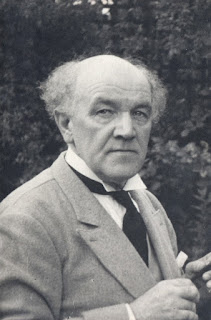Composer: Nikolai Medtner
- (01) 6 Poems by Pushkin, Op. 36
- (07) 5 Poems by Tyutchev & Fet, Op. 37
- (12) 4 Songs, Op. 45
- (16) 7 Poems, Op. 46
Sofia Fomina, soprano
Alexander Karpeyev, piano
Date: 2021
Label: Chandos
----------------------------------------------------------------------------
Thanks to the likes of Hamish Milne, Geoffrey Tozer and Marc-André Hamelin, Nikolay Medtner’s piano music has reached a wider audience on disc. It’s good to see other champions stepping forwards to do the same for the composer’s songs. Medtner wrote 108 of them and Iain Burnside’s excellent two-disc survey of around half of these for Delphian, featuring six singers, was warmly welcomed by Geoffrey Norris. It was joined last May by Ekaterina Levental and Frank Peters, launching the first volume of a complete edition (Brilliant Classics). And now the Russian pairing of Sofia Fomina and Alexander Karpeyev have recorded 22 of them for Chandos.
Interesting parallels are often drawn between Medtner and Rachmaninov, particularly as both were supreme pianists who went into exile. But all of Rachmaninov’s songs were composed before he left Russia, whereas Medtner, who did not leave until some years after the Russian Revolution, continued writing them. Two of the published sets here (Opp 36 and 37) were composed in the direct aftermath of the events of 1917, while the other two (Opp 45 and 46) were written in the little port of Erquy in Brittany in the summer of 1924, after a short stay in Paris. Also unlike Rachmaninov, Medtner set poets such as his beloved Goethe in the original German rather than in translation. Medtner had partial German ancestry and nearly half of his songs are set to German poetry.
A parallel with Rachmaninov that does stand is the frequently fiendish piano-writing and Medtner scholar and enthusiast Alexander Karpeyev is equal to the task, with some wonderfully tempestuous playing in works such as ‘Arion’ or the virtuoso piano part of ‘Elegy’, regarded as one of Medtner’s finest songs. It is noticeable that Karpeyev often favours swifter tempos than Burnside, which often lends his playing impetuosity at the occasional expense of reflection. The good old-fashioned Russian gloom of ‘Sleeplessness’ (Op 37 No 1) crawls a little at Burnside’s tempo; Karpeyev’s – a good minute faster – seems a more apt pace given the Andantino con moto, ma sempre lugubre tempo marking. And where the Scot allows the teardrops to fall gently (Op 37 No 2), the Russian offers more of an emotional torrent.
I heard Fomina give an all-Rachmaninov recital with baritone Roderick Williams in July 2019, when she impressed me a good deal more than some of the operatic roles I’ve heard her sing. Oddly, considering I’ve heard her as Olympia (Les contes d’Hoffmann) and Jemmy (Guillaume Tell), it’s not a flutey soprano, but she displays some interesting colours lower down and has a sensitive way with text. There is no crossover in repertoire between the Chandos and Brilliant discs, but several of Fomina’s selection appear on Burnside’s set where the soprano is Ekaterina Siurina. Both are very fine. Siurina floats her soprano more easily in a song such as ‘When roses fade’ (Op 36 No 3) and is more agile, taking the closing phrase in one breath, but she can sound pinched at times. Fomina has a rounder voice and when she lets rip in something like ‘Night Song’ (Op 45 No 3), it’s a glorious sound.
Chandos’s booklet boasts an excellent note by Francis Pott (who also writes the Delphian essay) but – like Delphian – the Russian texts are printed in Cyrillic rather than in transliteration. This means it’s much easier to follow the text – and therefore the translation – if you’re a fluent reader of Russian, in which case you probably don’t need the translation anyway.
-- Mark Pullinger, Gramophone
----------------------------------------------------------------------------
Nikolai Medtner (5 January 1880 [O.S. 24 December 1879] – 13 November 1951) was a Russian composer and pianist. A younger contemporary of Rachmaninoff and Scriabin, he wrote a substantial number of compositions, all of which include the piano. His works include fourteen piano sonatas, three violin sonatas, three piano concerti, a piano quintet, two works for two pianos, many shorter piano pieces, a few shorter works for violin and piano, and 108 songs including two substantial works for vocalise. Despite his conservative musical tastes, Medtner's compositions and his pianism were highly regarded by his contemporaries.
https://en.wikipedia.org/wiki/Nikolai_Medtner
https://en.wikipedia.org/wiki/Nikolai_Medtner
***
Russian soprano Sofia Fomina studied at the Orlovsky Music College and the Gnesin Academy of Music, Moscow. Her career began at the Novosibirsk Opera Theatre. She later joined the ensemble of the State Theatre of Saarbrucken, and was a member of Frankfurt Oper from 2013 to 2015. In 2010 she was awarded a grant by the Wagner Association in Bayreuth and received an invitation from Vladimir Jurowski to perform Janáček’s The Eternal Gospel with the London Philharmonic Orchestra at the Royal Festival Hall. The 2020/21 season sees Fomina launch her solo recital debut CD on Chandos.
----------------------------------------------------------------------------
FLAC, tracks
Links in comment
Enjoy!



This comment has been removed by the author.
ReplyDeletelink down, can you re-up?
ReplyDeleteChoose one link, copy and paste it to your browser's address bar, wait a few seconds (you may need to click 'Continue' first), then click 'Skip Ad' (or 'Get link').
ReplyDeleteIf you are asked to download or install anything, IGNORE, only download from file hosting site (mega.nz).
If MEGA shows 'Bandwidth Limit Exceeded' message, try to create a free account.
http://lyksoomu.com/yJZM
or
https://uii.io/ufOI8EjP
or
https://exe.io/QuM5Ca